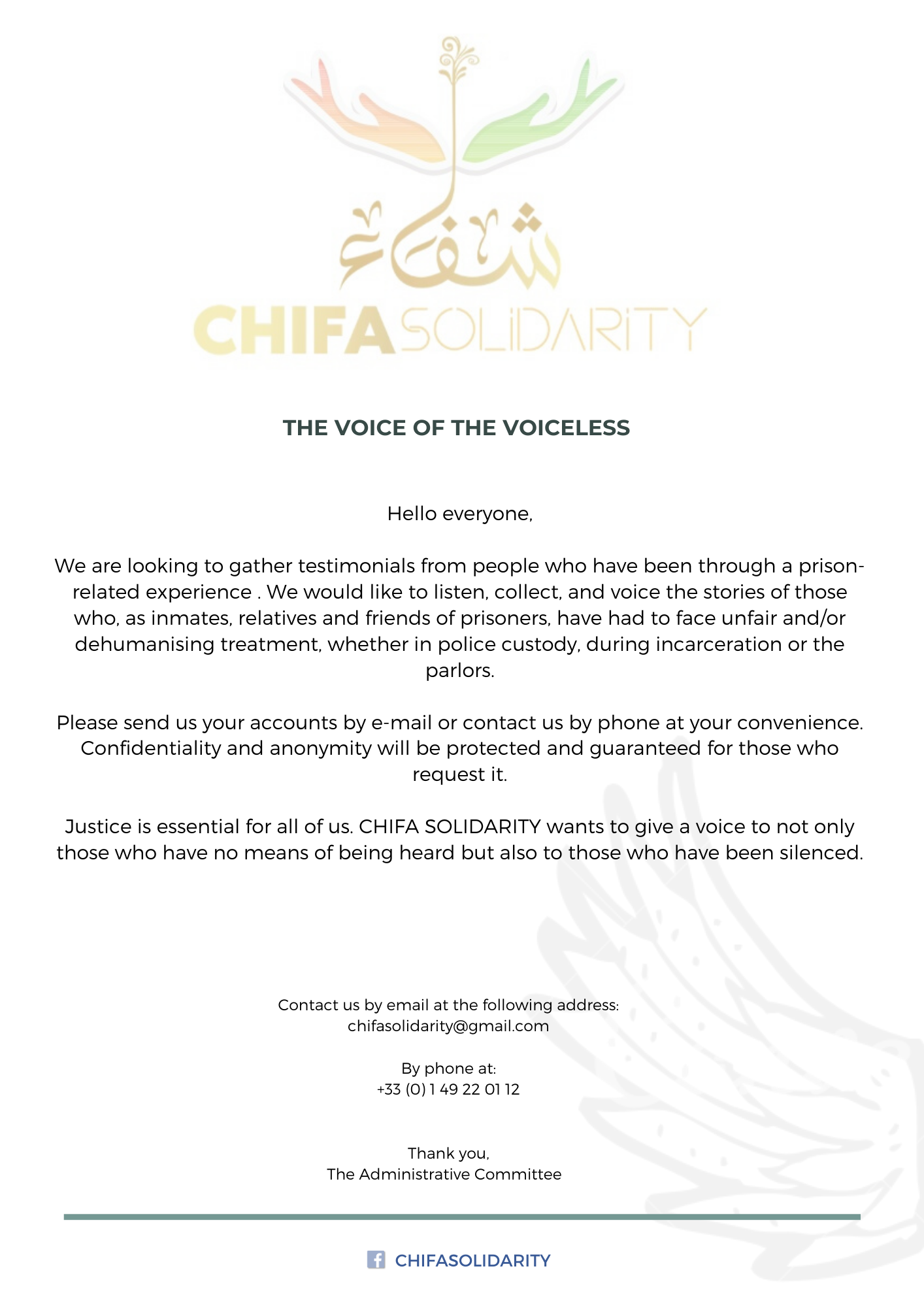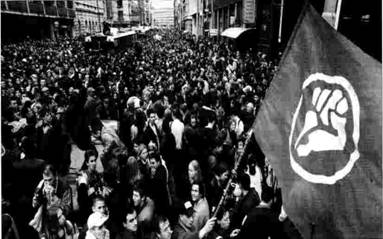My visit back home to the Galilee coincided with the genocidal Israeli attack on Gaza. The state, through its media and with the help of its academia, broadcasted one unanimous voice — even louder than the one heard during the criminal attack against Lebanon in the summer of 2006. Israel is engulfed once more with righteous fury that translates into destructive policies in the Gaza Strip. This appalling self-justification for the inhumanity and impunity is not just annoying, it is a subject worth dwelling on, if one wants to understand the international immunity for the massacre that rages on in Gaza.
It is based first and foremost on sheer lies transmitted with a newspeak reminiscent of darker days in 1930s Europe. Every half an hour a news bulletin on the radio and television describes the victims of Gaza as terrorists and Israel’s massive killings of them as an act of self-defense. Israel presents itself to its own people as the righteous victim that defends itself against a great evil. The academic world is recruited to explain how demonic and monstrous is the Palestinian struggle, if it is led by Hamas. These are the same scholars who demonized the late Palestinian leader Yasser Arafat in an earlier era and delegitimized his Fatah movement during the second Palestinian intifada.
But the lies and distorted representations are not the worst part of it. It is the direct attack on the last vestiges of humanity and dignity of the Palestinian people that is most enraging. The Palestinians in Israel have shown their solidarity with the people of Gaza and are now branded as a fifth column in the Jewish state; their right to remain in their homeland cast as doubtful given their lack of support for the Israeli aggression. Those among them who agree — wrongly, in my opinion — to appear in the local media are interrogated, and not interviewed, as if they were inmates in the Shin Bet’s prison. Their appearance is prefaced and followed by humiliating racist remarks and they are met with accusations of being a fifth column, an irrational and fanatical people. And yet this is not the basest practice. There are a few Palestinian children from the occupied territories treated for cancer in Israeli hospitals. God knows what price their families have paid for them to be admitted there. The Israel Radio daily goes to the hospital to demand the poor parents tell the Israeli audience how right Israel is in its attack and how evil is Hamas in its defense.
There are no boundaries to the hypocrisy that a righteous fury produces. The discourse of the generals and the politicians is moving erratically between self-compliments of the humanity the army displays in its "surgical" operations on the one hand, and the need to destroy Gaza for once and for all, in a humane way of course, on the other.
This righteous fury is a constant phenomenon in the Israeli, and before that Zionist, dispossession of Palestine. Every act whether it was ethnic cleansing, occupation, massacre or destruction was always portrayed as morally just and as a pure act of self-defense reluctantly perpetrated by Israel in its war against the worst kind of human beings. In his excellent volume The Returns of Zionism: Myths, Politics and Scholarship in Israel, Gabi Piterberg explores the ideological origins and historical progression of this righteous fury. Today in Israel, from Left to Right, from Likud to Kadima, from the academia to the media, one can hear this righteous fury of a state that is more busy than any other state in the world in destroying and dispossessing an indigenous population.
It is crucial to explore the ideological origins of this attitude and derive the necessary political conclusions form its prevalence. This righteous fury shields the society and politicians in Israel from any external rebuke or criticism. But far worse, it is translated always into destructive policies against the Palestinians. With no internal mechanism of criticism and no external pressure, every Palestinian becomes a potential target of this fury. Given the firepower of the Jewish state it can inevitably only end in more massive killings, massacres and ethnic cleansing.
The self-righteousness is a powerful act of self-denial and justification. It explains why the Israeli Jewish society would not be moved by words of wisdom, logical persuasion or diplomatic dialogue. And if one does not want to endorse violence as the means of opposing it, there is only one way forward: challenging head-on this righteousness as an evil ideology meant to cover human atrocities. Another name for this ideology is Zionism and an international rebuke for Zionism, not just for particular Israeli policies, is the only way of countering this self-righteousness. We have to try and explain not only to the world, but also to the Israelis themselves, that Zionism is an ideology that endorses ethnic cleansing, occupation and now massive massacres. What is needed now is not just a condemnation of the present massacre but also delegitimization of the ideology that produced that policy and justifies it morally and politically. Let us hope that significant voices in the world will tell the Jewish state that this ideology and the overall conduct of the state are intolerable and unacceptable and as long as they persist, Israel will be boycotted and subject to sanctions.
But I am not naive. I know that even the killing of hundreds of innocent Palestinians would not be enough to produce such a shift in the Western public opinion; it is even more unlikely that the crimes committed in Gaza would move the European governments to change their policy towards Palestine.
And yet, we cannot allow 2009 to be just another year, less significant than 2008, the commemorative year of the Nakba, that did not fulfill the great hopes we all had for its potential to dramatically transform the Western world’s attitude to Palestine and the Palestinians.
It seems that even the most horrendous crimes, such as the genocide in Gaza, are treated as discrete events, unconnected to anything that happened in the past and not associated with any ideology or system. In this new year, we have to try to realign the public opinion to the history of Palestine and to the evils of the Zionist ideology as the best means of both explaining genocidal operations such as the current one in Gaza and as a way of pre-empting worse things to come.
Academically, this has already been done. Our main challenge is to find an efficient to explain the connection between the Zionist ideology and the past policies of destruction, to the present crisis. It may be easier to do it while, under the most terrible circumstances, the world’s attention is directed to Palestine once more. It would be even more difficult at times when the situation seems to be "calmer" and less dramatic. In such "relaxed" moments, the short attention span of the Western media would marginalize once more the Palestinian tragedy and neglect it either because of horrific genocides in Africa or the economic crisis and ecological doomsday scenarios in the rest of the world. While the Western media is not likely to be interested in any historical stockpiling, it is only through a historical evaluation that the magnitude of the crimes committed against the Palestinian people throughout the past 60 years can be exposed. Therefore, it is the role of an activist academia and an alternative media to insist on this historical context. These agents should not scoff from educating the public opinion and hopefully even influence the more conscientious politicians to view events in a wider historical perspective.
Similarly, we may be able to find the popular, as distinct from the high brow academic, way of explaining clearly that Israel’s policy — in the last 60 years — stems from a racist hegemonic ideology called Zionism, shielded by endless layers of righteous fury. Despite the predictable accusation of anti-Semitism and what have you, it is time to associate in the public mind the Zionist ideology with the by now familiar historical landmarks of the land: the ethnic cleansing of 1948, the oppression of the Palestinians in Israel during the days of the military rule, the brutal occupation of the West Bank and now the massacre of Gaza. Very much as the Apartheid ideology explained the oppressive policies of the South African government, this ideology — in its most consensual and simplistic variety — allowed all the Israeli governments in the past and the present to dehumanize the Palestinians wherever they are and strive to destroy them. The means altered from period to period, from location to location, as did the narrative covering up these atrocities. But there is a clear pattern that cannot only be discussed in the academic ivory towers, but has to be part of the political discourse on the contemporary reality in Palestine today.
Some of us, namely those committed to justice and peace in Palestine, unwittingly evade this debate by focusing, and this is understandable, on the Occupied Palestinian Territories (OPT) — the West Bank and Gaza Strip. Struggling against the criminal policies there is an urgent mission. But this should not convey the message that the powers that be in the West adopted gladly by a cue from Israel, that Palestine is only in the West Bank and the Gaza Strip, and that the Palestinians are only the people living in those territories. We should expand the representation of Palestine geographically and demographically by telling the historical narrative of the events in 1948 and ever since and demand equal human and civil rights to all the people who live, or used to live, in what today is Israel and the OPT.
By connecting the Zionist ideology and the policies of the past with the present atrocities, we will be able to provide a clear and logical explanation for the campaign of boycott, divestment and sanctions. Challenging by nonviolent means a self-righteous ideological state that allows itself, aided by a mute world, to dispossess and destroy the indigenous people of Palestine, is a just and moral cause. It is also an effective way of galvanizing the public opinion not only against the present genocidal policies in Gaza, but hopefully one that would prevent future atrocities. But more importantly than anything else it will puncture the balloon of self-righteous fury that suffocates the Palestinians every times it inflates. It will help end the Western immunity to Israel’s impunity. Without that immunity, one hopes more and more people in Israel will begin to see the real nature of the crimes committed in their name and their fury would be directed against those who trapped them and the Palestinians in this unnecessary cycle of bloodshed and violence.
Ilan Pappe is chair in the Department of History at the University of Exeter.





